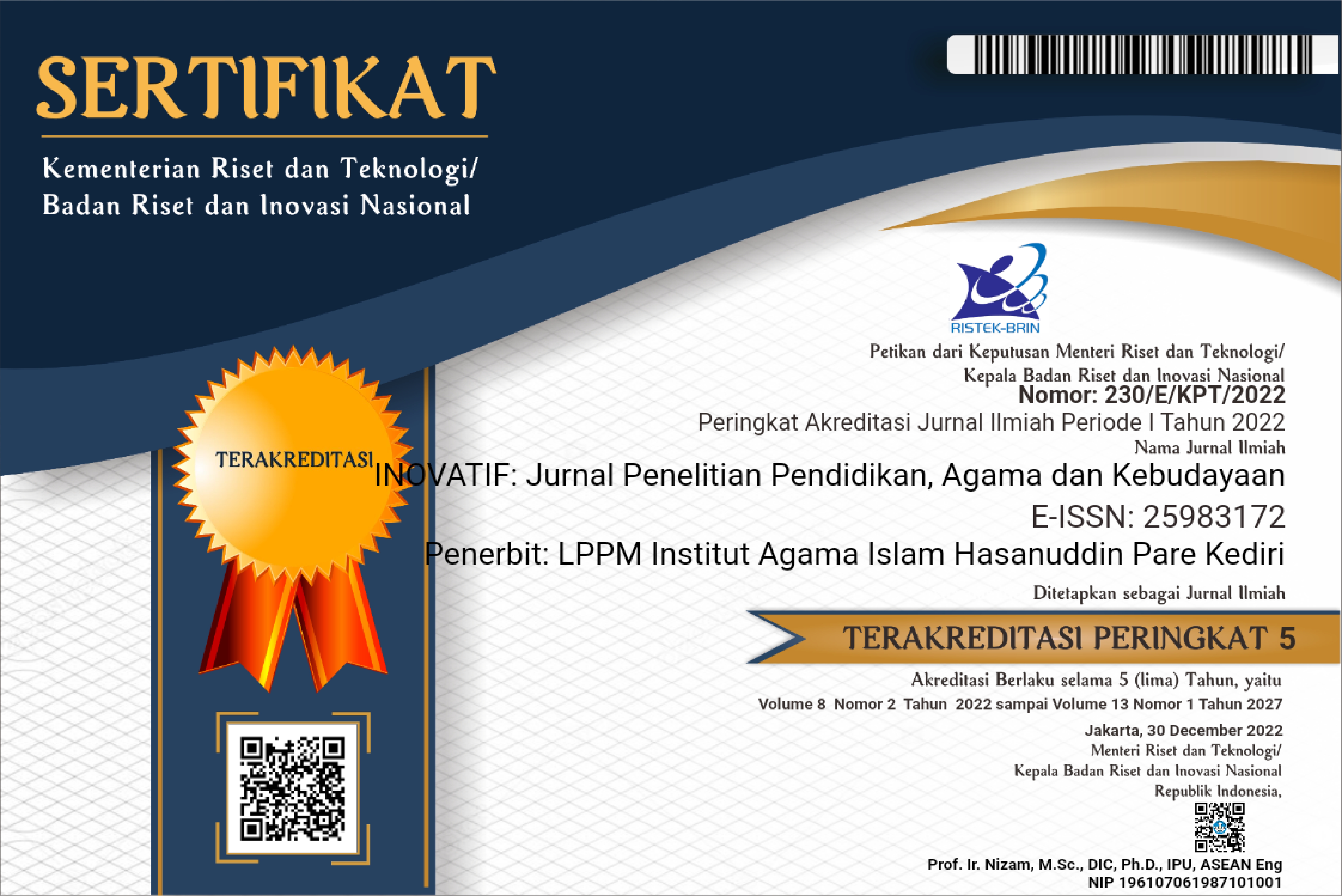Pengaruh Tahfidzul Qur’an terhadap Prestasi Belajar Siswa (Studi Kasus Pada Siswa Kelas VIII B MTs Sunan Ampel Pare Tahun Pelajaran 2018/2019)
DOI:
https://doi.org/10.55148/inovatif.v5i2.110Keywords:
Memorizing the Holy Qur’an, Learning Achievement.Abstract
Al-Qur’an is the verses of Allah or sayings of Allah derived form the Arabic language, which is the only language maintained. Because the Qur’an unloaded by rote rather than writing, so every revelation that the prophet told to write down and memorize it. With the Qur’ans that we learnt and we memorized it really helps the students to practice and develop their thinking and the power of reason, so that it can optimally use your common sense. Thus, the results or the learning achievement of students will also increase along with the intellectual acuity obtained from the process of understanding and memorizing verses of the Qur’an little by little to be perfect.
In this study the authors conducted a field study conducted at the scene of the symptoms with the method used is quantitative method. Data collection techniques in the form of tests, observations, interviews, documentation and questionnaires. Once the data is collected, the researchers conducted a simple linear regression analysis using SPSS 20.0 software. And the results showed that the alternative hypothesis (Ha) filed accepted and nil hypothesis (H0) that was rejected.
Evidenced by the results of the analysis outlined obtained significance value of 0.000 < 0.05 (probability value), using the t test results obtained by t calculate equal to 8.926 is greater than t table of 2.03224, which means that Memorizing the Holy Qur’an (X ) effect on student achievement (Y).
Then there is a significant influence of Memorizing the Holy Qur’an (X) on student achievement (Y) is evidenced by the coefficient of determination (R Square) of 0.701 or equivalent to 70.1%.
References
Downloads
Published
Issue
Section
License
Please read Copyright Notice for Inovatif: Journal of Research on Religious Education and Culture









